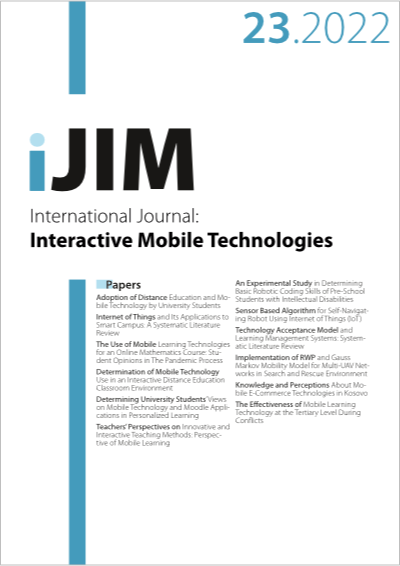The Effectiveness of Mobile Learning Technology at the Tertiary Level During Conflicts
DOI:
https://doi.org/10.3991/ijim.v16i23.33793Keywords:
mobile learning, University students, warfare, learning EnglishAbstract
The paper investigates the effectiveness of personal smartphones and other mobile devices for learning English at the tertiary level during hostility in Ukraine. The research methods included 1) general theoretical methods (analysis and synthesis); 2) empirical methods (quasi-experiment, observation, interpretation); 3) methods of mathematical statistics (Pearson’s criterion). The material of the research involved 80 students of the first year of Yaroslav Mudryi National Law University (Kharkiv, Ukraine) during spring semester of 2021/2022 academic year. There were two samples: the experimental group (N = 40) that learned the course of “Legal English” exclusively through mobile devices and the control group (N = 40) that had only traditional forms of learning. The results revealed that academic progress of the students of the experimental group have improved by 15%, while achievements of the students of the control group have deteriorated by 10%. The reliability of the results is confirmed by the methods of mathematical statistics (p-value = 0.25; the significance level was chosen as 0.05). The conclusion is that mobile learning technology, which is able to provide students with access to systematic online training; platforms containing different textbooks and other local and remote educational content; as well as various educational services may become a great teaching and learning tool.
Downloads
Published
How to Cite
Issue
Section
License
Copyright (c) 2022 Liudmyla Holubnycha, PhD. Tetiana Besarab, PhD. Yana Pavlishcheva, PhD. Svitlana Romaniuk , PhD. Tetiana Ahibalova; PhD. Olena Alpatova

This work is licensed under a Creative Commons Attribution 4.0 International License.


